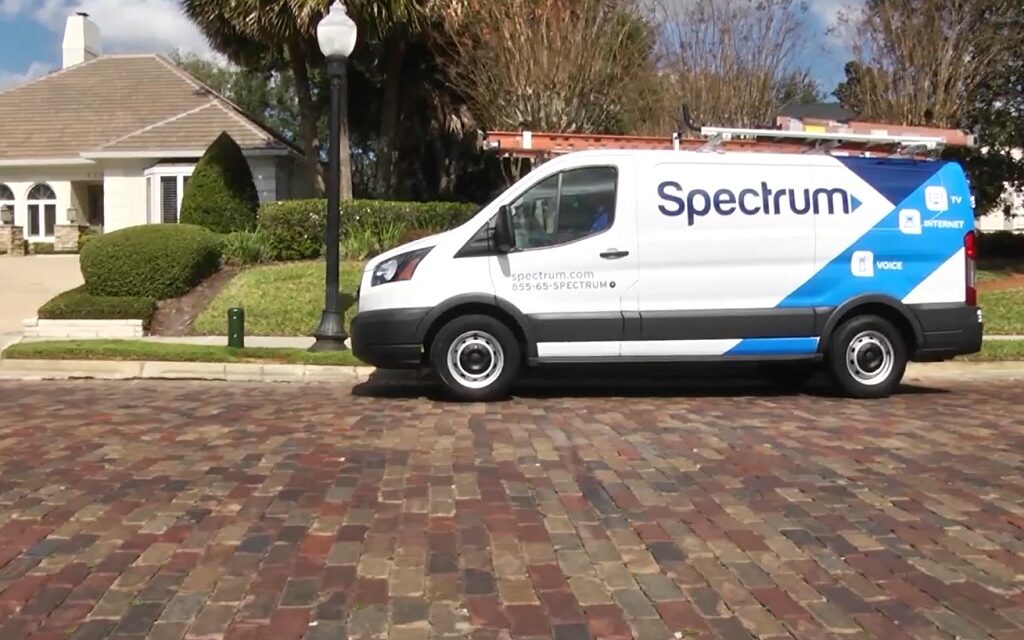The recent jury verdict in a civil lawsuit against Charter Communications Inc., which also operates as Spectrum, highlights the dangers of allowing unknown and poorly vetted service personnel into your home.
A Dallas County jury awarded $7 billion in punitive damages against Charter Communications in the death of 83-year-old Betty Jo Thomas, who was savagely murdered by one of their technicians in 2019, during a routine service call.
In an earlier verdict in June of this year, a jury awarded the family of Ms. Thomas 90% of $375 million in compensatory damages, a result of “systemic safety failures” in connection with their employee screening program.
This horrific incident serves as a stark reminder to homeowners and tenants that we too often unwittingly put ourselves and families at great risk when granting access to our homes to strangers.
There are many precautions to take to keep you and your family safe during professional service calls.
Table of Contents
- The Murder of Betty Jo Thomas
- Civil Jury Verdict
- Employer Liability
- Lessons Learned
- How to Protect Yourself During Service Calls in Your Home
- Related Articles & Resources
Also see:
- How to Make Your Home Entrances & Deliveries Safe With Technology
- Informed Delivery: How to Preview Your Postal Mail Online for Free
- Never Heard of Check Washing & Still Mailing Checks? Read This.
- How to Make a Major Home Renovation Project Safe for Your Family
- Researching a Neighborhood Before Buying a Home
- More Home Security & Safety Articles
The Murder of Betty Jo Thomas
In late 2019, widow Betty Jo McClain Thomas called her cable company to request an on-site service appointment to fix her fax machine phone line connection. Spectrum sent 43-year-old technician, Roy James Holden, Jr. to Ms. Thomas’ Irving, Texas home on December 11th.
The next day, Holden returned to Ms. Thomas’ home, after his shift had ended, while still driving his company issued van. Court records later revealed that in the weeks prior to the murder, Holden was likely sleeping in his company van, having previously complained of financial pressures to his supervisors. NOTE: During the trial, it was revealed that Charter had deleted eight minutes of video footage showing Holden taking the Spectrum van from the company parking lot, the day he murdered Ms. Thomas.
Thomas’s family was expecting her at a family dinner that evening. When she failed to show up, they discovered her on her living room floor, stabbed to death. The investigation and footage from Thomas’ Ring doorbell camera revealed that Holden was the last person to see Ms. Thomas alive.
Holden plead guilty to the murder and was sentenced to life in prison. However, a civil trial revealed that Holden lied about his work history and Charter Communications admitted that they failed to verify his past employment.
Had the cable company adequately performed the expected background checks that customers expect, Holden would have been disqualified for his job, as his past revealed firings for forgery, falsifying documents and harassment of fellow employees, according to court records.
Furthermore, Holden, while an employee at Spectrum, began scamming elderly female Spectrum cable customers by stealing their credit cards and checks, according to court testimony.
Civil Jury Verdict
On June 23, 2022, a Dallas County jury in response to the Thomas Family’s Civil Lawsuit, awarded the family $375 million in compensatory damages, holding Spectrum/Charter Communications responsible for 90% of the damages.
On July 26th of the same year, the jury returned an additional award of $7 Billion in Punitive Damages, as they believed that Spectrum displayed a “Shocking breach of faith” to its customer, Betty Jo Thomas.
Employer Liability
At issue here is a company’s responsibility to its customers for actions committed by an employee, as well as the company’s own negligence in its hiring practices.
Charter Communications/Spectrum had discontinued an employee screening program that Time Warner Cable had in place when Charter purchased Time Warner in 2016. When an employer fails to perform a reasonable due diligence on an employee’s work history, this can be a cause of action against any victim of this employee’s crime.
It is the expectation of any reasonable homeowner that companies hire individuals who are trustworthy and who do not pose a criminal threat to its customers. Thorough vetting is especially important for roles that require employees to enter the homes of customers.
According to court documents, Spectrum hired Holden without verifying his employment history, which would have revealed multiple inaccuracies in his work history.
Furthermore, Spectrum was aware of multiple complaints against Holden lodged by Spectrum customer’s whose credit cards had been stolen and used fraudulently after Holden’s service calls to their respective homes.
Spectrum also allowed Holden access to the company van after work hours, likely giving a sense of legitimacy to his return visits to his victims’ homes. After completing an official service visit, customers’ guards would be lowered with any subsequent visits, especially when using a corporate vehicle.
Lessons Learned
These types of atrocious stories help to draw out key reminders of staying vigilant when having strangers inside your home. In this particular case, here are a few details that really got our attention in hindsight:
- The biggest insight we gleamed is to treat all on-site appointments seriously and cautiously
- Do not allow any service personnel into your home without confirming with the company dispatch, even if they have visited your home previously
- A simple call to Spectrum’s dispatch would have confirmed that Holden had no legal reason to be at Ms. Thomas’ home the next day
- Always investigate how companies conduct background checks on their employees when hiring firms that will send individuals to your home
- Women and elderly especially should have a buddy system when receiving an on-site service technician
How to Protect Yourself During Service Calls in Your Home
Sadly, the Spectrum murder case is not the first of its kind. Another egregious example, Natasha Saine vs. Comcast Cable, was in 1996 when a Comcast Cable technician raped and attempted to murder an Arkansas woman in her home. The perpetrator had been hired by Time Warner Cable as a technician, even though he had a record of being a sexual predator.
There are proactive steps that homeowners can take to insure that service calls do not place you in danger.
Request identification from both, the phone representative and the technician at your door.
Make sure to ask the dispatcher the name of the person who will be coming to your home and ask to see ID when he or she arrives. It is best to be able to see identification of a service person via a video security camera, like Ring, that does not require you to unlock and open the door.
We have gone as far as taking a photo of the person with their company ID, should any questions arise after the service call. We also take photos of the service person’s vehicle, complete with license number, business name, address and phone number, as some service technician use their own vehicles.
Never reveal your personal living situation to strangers, including any personal information about children, spouses, or other persons who may or may not be living with you in the home
Getting too chatty, can often be detrimental in situations such as this, as a lot of useful information can be revealed unbeknownst to the homeowner. Don’t mention marital status, profession, employer, planned vacations, etc. Get service personnel in and out as quickly and efficiently as possible.
Inquire to the company you are hiring, if they perform criminal background checks and complete work history verifications of their employees, who are sent to customer’s homes.
As a homeowner you have a reasonable expectation that companies you hire will perform a thorough background check on employees who visit your home.
It is imperative that the company meet this critical responsibility, as their customers have no way to determine the criminal and employment background, or mental fitness of any in-home service representative.
If possible, have someone you trust with you during service visits.
Invite a neighbor for coffee around the time of your call, and likewise serve as a “trusted friend” when your neighbor needs a wingman in turn.
Use technology such as Ring or Nest security systems to monitor and record service professional visits.
Nanny-cams are also a great indoor tool to be used when service professionals are in your home.
Personal belongings should be stored, secured and out of plain sight.
Make sure to shut doors to rooms for which the technician would not need access. Maintain complete visual security, allowing the technician visual access to only what is needed to complete the job.
Give preference to service solutions that do not require a visit from a technician inside your home.
Examples would be DIY Pest Control, Wireless vs. Cable Internet Services, and Virtual repair services.
Related Articles & Resources
- North Texas law professor breaks down impact of $7B Spectrum lawsuit
- When house calls turn deadly: Are cable companies responsible for workers’ violent crimes?
- Strangers in Your House: How to Stay Safe when Contractors or Repair People Come By
- Anthony Triplett: The Comcast Killer
- Cable repairman convicted of second rape, murder from decade ago
Recommended Home Security & Safety Articles
- Security and Safety Products for Your Home Renovation Project
- The Traits & Risks of Dangerous Trees: Is Your Property Safe?
- Building Technologies for Disaster Resistant Homes
- How Technology is Influencing What Consumers Want from Homeownership
- Why You Should Never Lend Your Ladder to Your Contractor
- Best Online Legal Services for Homeowners & Property Owners
- How to Live in a World of Fake Reviews
- Homeowner Liability With DIY Projects
| Purgula is reader-supported. When you click on links to other sites from our website, we may earn affiliate commissions, at no cost to you. If you find our content to be helpful, this is an easy way for you to support our mission. Thanks! Learn more. |







